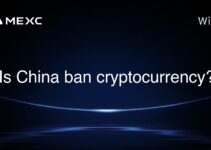No, NFTs (Non-Fungible Tokens) are not dead. As of 2025, the NFT market continues to evolve and expand, integrating deeper into sectors such as digital art, gaming, real estate, and identity verification. While the hype surrounding NFTs has normalized since its peak in 2021, the underlying technology and its applications remain robust, driving new innovations and continued interest across various industries.
Importance of the NFT Market to Investors, Traders, and Users
The question of whether NFTs are dead is crucial for stakeholders within the crypto and financial markets. Investors and traders are particularly interested in the viability and potential growth of NFTs as an asset class. This interest is driven by the unique characteristics of NFTs, primarily their ability to represent ownership of unique items and secure digital rights via blockchain technology.
For users, especially creators and collectors, NFTs offer a novel method of monetizing and authenticating digital and real-world assets. The ongoing development in the NFT space influences the strategies of digital artists, game developers, and companies looking to engage with these technologies for branding and customer engagement.
Real-World Examples and 2025 Insights
Integration in Digital Art and Music
Artists and musicians continue to leverage NFTs to gain more control over their works and profits. In 2025, platforms like OpenSea and Rarible remain popular, allowing artists to sell their work directly to the public without intermediaries. For instance, digital artist Beeple, who previously made headlines with a $69 million NFT sale, continues to release collections that integrate augmented reality, providing a more immersive experience to collectors.
Expansion into Gaming and Virtual Real Estate
The gaming industry has seen significant integration of NFTs, with assets ranging from in-game items to entire virtual landscapes being tokenized. Games like ‘Decentraland’ and ‘The Sandbox’ have developed economies where players can buy, sell, or trade virtual real estate as NFTs, contributing to a more dynamic and invested gaming community. In 2025, these platforms have expanded their user base and introduced new features that allow for more extensive customization and interaction.
Use in Identity Verification and Intellectual Property
NFTs are being utilized for identity verification processes. By tokenizing personal credentials, individuals can maintain control over their personal data while proving their identity or qualifications in a secure manner. Similarly, patents and copyrights can be managed through NFTs, ensuring creators and inventors retain ownership and receive due compensation for the use of their intellectual property.
Data and Statistics
According to a 2025 report from NonFungible.com, the total value of NFT transactions has stabilized at around $10 billion annually, following a period of volatility. The report also highlights a shift in the market, with more transactions involving utility-driven NFTs rather than purely collectible items. This shift indicates a maturing market where the focus is on practical applications rather than speculative trading.
Furthermore, a survey conducted by MEXC, a leading cryptocurrency exchange, shows that 60% of crypto investors have included NFTs in their portfolios, citing diversification and potential for high returns as the primary reasons. This data underscores the continued relevance and interest in NFTs within the investment community.
Conclusion and Key Takeaways
The notion that NFTs are dead is far from accurate. While the explosive growth observed in the early 2020s has normalized, the NFT market remains active and is evolving with new applications and integrations that extend beyond simple collectibles. Investors, traders, and users are advised to stay informed about the developments in this sector, as the technology’s integration into various industries suggests a promising future for NFTs.
Key takeaways include the continued importance of NFTs in digital rights management, the expansion of their use in gaming and virtual real estate, and their emerging role in identity verification and intellectual property management. For those looking to invest or participate in the NFT market, focusing on projects that offer real utility and innovation is advisable, as these are likely to drive the next wave of growth in the NFT space.
DISCLAIMER
Article(s) displayed above is/are generated by artificial intelligence (AI) and may not be manually reviewed by a member of the MEXC team before it is published. The content displayed above does not represent the views of MEXC or its affiliates. Similarly, MEXC does not endorse the accuracy or truthfulness of the above data. Under no circumstance should reliance be placed on the above information. You are recommended to consult a professional, independent advisor where necessary.



